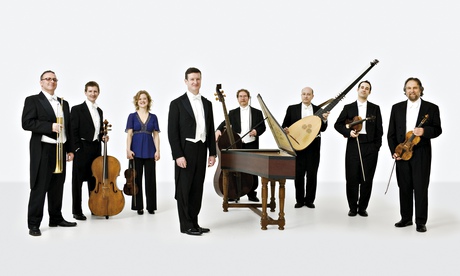
Spitalfields Music’s annual winter festival generates an always-welcome December force field of imaginative musical events amid the surrounding seasonal excess in the City of London. That’s particularly true when its concerts take place in one of its prime venues, Nicholas Hawksmoor’s Hanoverian church on the eastern edge of the Square Mile, which is one of the most agreeable musical venues in town.
There were respectful nods to the season in two arias from Bach’s Christmas Oratorio at the start of this performance by the English Concert, directed from the harpsichord by Harry Bicket. And Locatelli’s Concerto Grosso in F minor, Op 1 No 8, is sometimes dubbed the Christmas concerto because it finishes with a shepherds’ pastorale not unlike the one Handel inserted into Messiah.
Bicket unwrapped a musical surprise, too, in the shape of a concerto for four violins by the mysterious Dutch diplomat-composer Unico Willem van Wassenaer, some of whose work was for many years attributed to Pergolesi, no less. The playing, with Matthew Truscott’s violin always eloquently at the forefront, was ravishingly good. But the prime opportunity of this concert had little to do with the time of year.
It was simply the chance to hear the UK’s pre-eminent countertenor Iestyn Davies in an ideal venue, in works by Bach and Dieterich Buxtehude that were often far from festive. The Christmas Oratorio arias were gems of Davies’s direct and unaffected style, with Truscott’s violin solo sharing the honours in the second aria.
The celebratory message of Buxtehude’s Jubilate Domino, austerely set for alto, continuo and viola da gamba, played here with concentrated panache by Jonathan Manson, was sung with appropriately Lutheran earnest intensity. Best of all was Bach’s Cantata BWV 170 Vergnügte Ruh, Beliebte Seelenlust, whose many stylistic contrasts allowed Davies to display the full variety of his vocal art.
With Davies’s wonderfully clear projection, perhaps Bach’s call to reject the sins of the world in favour of the virtuous life was even heard at the RBS headquarters at the far end of the street.

